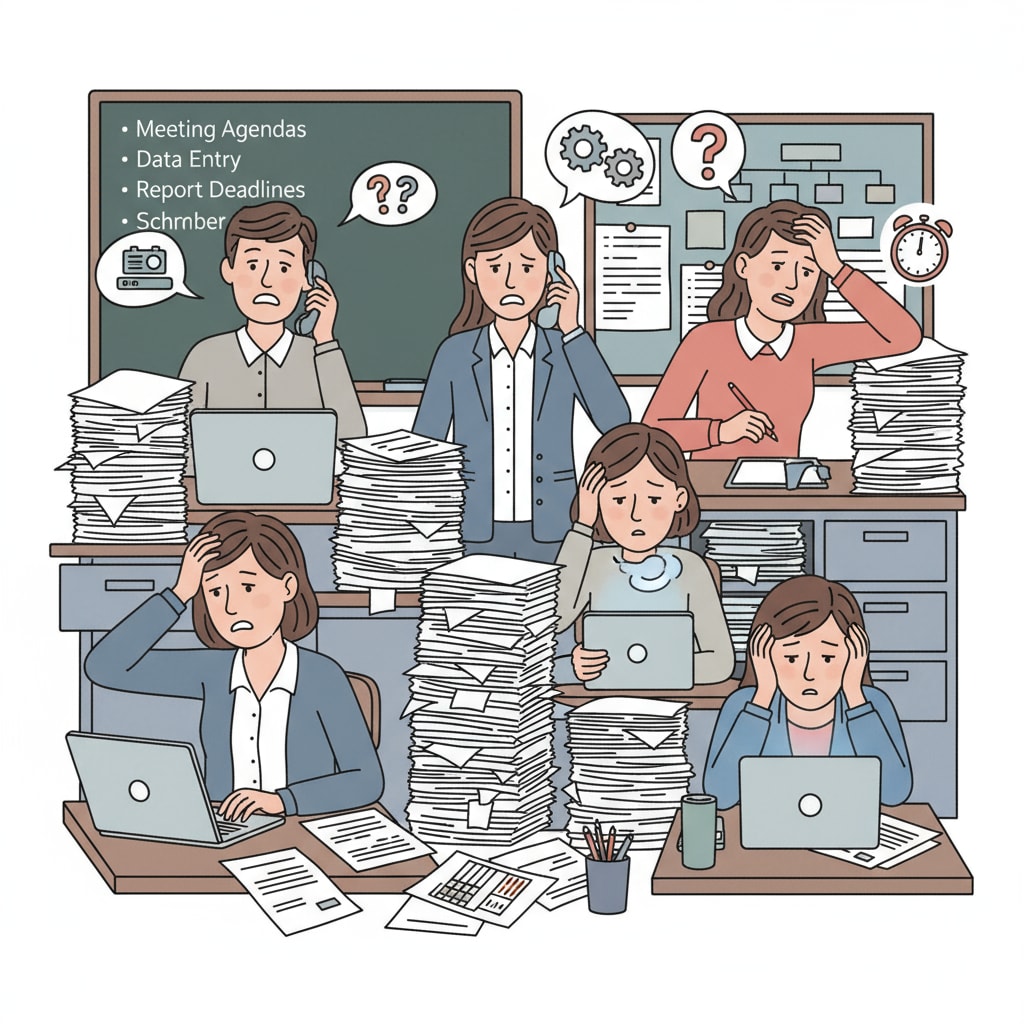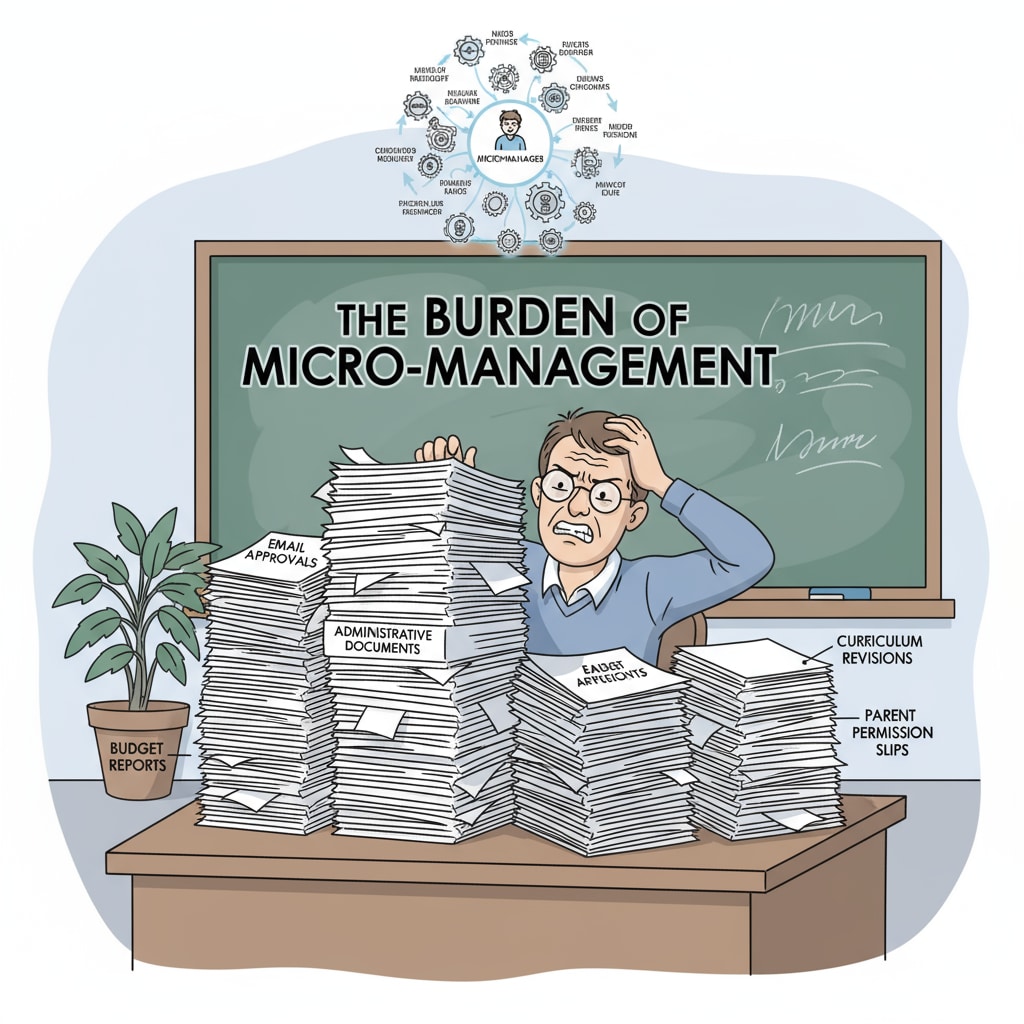In the realm of K12 education, micro – management, teaching autonomy, and work pressure are intertwined issues that significantly impact educators. The current educational landscape often subjects teachers to excessive micro – management, which in turn erodes their teaching autonomy and contributes to high levels of work pressure. This not only affects teachers’ professional growth but also has implications for the quality of education provided.

The Burden of Micro – management
Micro – management in K12 education involves excessive control over teachers’ daily tasks. Administrators may dictate minute details such as lesson plans, teaching methods, and even the pacing of a class. For example, teachers might be required to follow a rigid curriculum framework without any room for adaptation. This level of control restricts teachers’ creativity and ability to respond to the diverse needs of students. As a result, teachers often feel like mere implementers rather than educators with professional judgment. According to the National Education Association, such micro – management can lead to a decrease in teacher job satisfaction.

The Erosion of Teaching Autonomy
The lack of teaching autonomy is a direct consequence of overzealous micro – management. Teachers should have the freedom to design lessons that engage students, choose appropriate teaching materials, and assess student learning in a way that aligns with their professional expertise. However, in many K12 settings, this autonomy has been severely curtailed. Teachers may need to seek approval for every small change in their teaching approach, which slows down the teaching process and stifles innovation. A study by the Educational Resources Information Center found that schools with more teacher autonomy tend to have better – performing students.
Another aspect of autonomy loss is in the area of curriculum development. Teachers often have valuable insights based on their classroom experience, but they are frequently excluded from the curriculum – making process. Instead, top – down decisions are made, leaving teachers with little say in what they teach. This not only undermines their professional authority but also makes it difficult for them to connect with the curriculum on a deeper level.
Work Pressure and Burnout
The combination of micro – management and lack of teaching autonomy leads to significant work pressure for teachers. They are constantly juggling administrative demands with the actual task of teaching. The stress of meeting rigid requirements, often without the flexibility to adapt, can cause burnout. Burnout is characterized by emotional exhaustion, depersonalization, and a reduced sense of personal accomplishment. Teachers experiencing burnout may be less engaged with their students, leading to a decline in the quality of education.
For example, a teacher who has to spend hours filling out detailed reports about every lesson, rather than focusing on student interaction and lesson improvement, is more likely to feel overwhelmed. This work pressure can also have a negative impact on teachers’ mental health and well – being, which in turn affects their long – term commitment to the profession.
Rebuilding the Educational Ecosystem
To address these issues, it is essential to find a balance between management and teacher autonomy. Administrators should trust teachers’ professional judgment and provide them with more decision – making power. This could involve giving teachers a greater say in curriculum design, assessment methods, and classroom management. By doing so, teachers will feel more valued and motivated to perform their best.
Schools can also implement professional development programs that focus on enhancing teachers’ skills in areas such as curriculum development and innovative teaching methods. This will not only improve teachers’ capabilities but also give them the confidence to take on more autonomy in their teaching. Additionally, creating a supportive school culture that encourages open communication between teachers and administrators can help reduce the sense of being micro – managed.
Readability guidance: In this article, we have explored how micro – management, lack of teaching autonomy, and work pressure are interrelated in K12 education. By highlighting the problems and suggesting solutions, we hope to inspire changes that will benefit both teachers and students. Using shorter paragraphs and clear headings, we have made the content more accessible. Lists have been used to break down complex ideas, and transition words like ‘however’, ‘therefore’, and ‘for example’ have been employed to improve the flow of the text.


